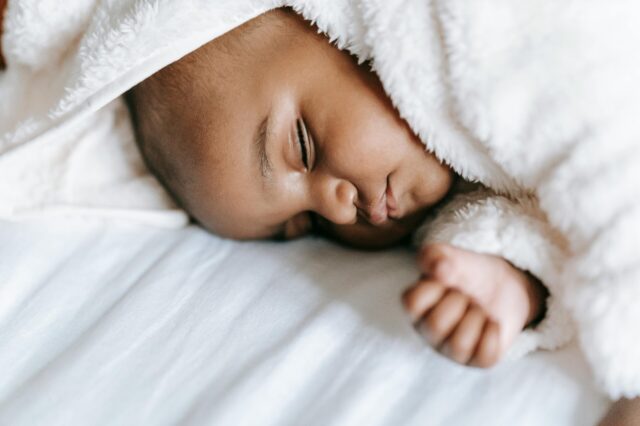Why Quality Sleep is Key for Children's Health and Ways to Get More
March 15 marks World Sleep Day — a great time to emphasize the significance of children’s sleep wellness, as research shows high-quality sleep is crucial for…

Update your location to show providers, locations, and services closest to you.
Approximately 20 percent to 25 percent of adults and children have sleep disorder signs and symptoms.
There have been tremendous advancements in the diagnosis and treatment of sleep-related disorders in recent decades. The physicians of the UF Health Sleep Center provide a multidisciplinary approach to these disorders, including experts in neurology, pulmonary medicine, pediatric pulmonary, otolaryngology and clinical psychology. The UF Health Sleep Center is accredited by the American Academy of Sleep Medicine (AASM) and is one of the only accredited AASM centers in north central Florida.
There are more than 80 sleep disorders, and some of them can be life threatening. UF neurologists diagnose and treat a variety of sleep disorders. Download informational presentations about each of the following sleep disorders to learn more about the condition and treatment:
Any of the following symptoms or issues may indicate a sleep disorder:
If you believe you have a sleep disorder, describe your symptoms to your primary care physician. Snoring, for example, may indicate the most common disorder, obstructive sleep apnea, which contributes to many health issues, including hypertension, cardiovascular disease and stroke. Resolving sleep problems may prevent more serious health problems from developing.
Physicians and technologists at the UF Health Shands Sleep Center offer several procedures to your doctor to monitor and treat a full range of sleep disorders.
These tests include:
The CPAP titration is a test that measures the effectiveness of CPAP (continuous positive airway pressure), the most popular and least invasive form of sleep apnea treatment. During a CPAP titration, you will be “hooked-up” with the same equipment as in a standard complex polysomnography, but CPAP will be added and measured as you sleep.
Split study is a complex polysomnography and a CPAP titration broken up into two sections in one night. Your doctor may order this procedure if he or she suspects sleep apnea is the cause of your symptoms. It is important that you tell your sleep technologist if you have trouble sleeping or falling asleep in certain positions. Many times, the sleep technologists are unable to get both sections of the study done in one night. In the case that your study can not be split up the first night that you are in, the UF Health Shands Sleep Disorders Center will contact you after the first study has been analyzed to schedule the treatment portion.
Want to know more? Check out our Patient Education section for more information.
March 15 marks World Sleep Day — a great time to emphasize the significance of children’s sleep wellness, as research shows high-quality sleep is crucial for…

Determining the derivative of y times 23 to the 15th power is tough enough. Figuring it out on just a few hours of sleep could be almost impossible. With a new…

Insomnia and sleep apnea can be an especially deadly combination. New research shows people who have both disorders are more likely to have heart problems and a greater risk of dying than those...
Waging the bedtime versus T-V battle is a rite of passage for parents. Sometimes, getting your little ones to turn away from the screen and put on pajamas without a fight seems impossible. New...
Being a law-enforcement officer is dangerous. There’s always the chance of a shoot-out, fight or traffic stop gone wrong. But another job-related hazard lurks in a comfy bed. There’s actually a...